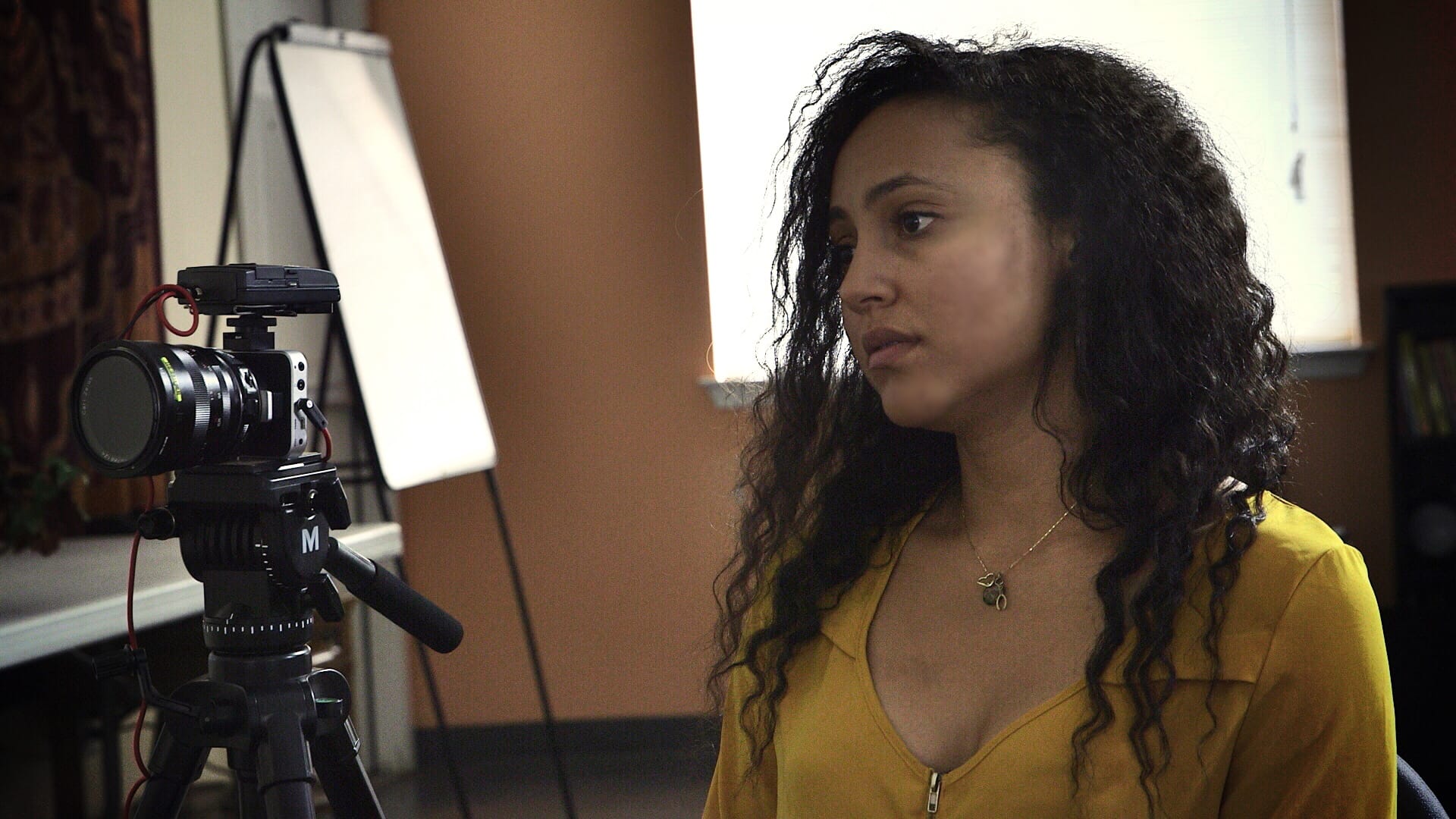Hannelore Williams Discusses LoveStruck

This week, we sat down with filmmaker Hannelore Williams, director of the forthcoming three part documentary webseries, LoveStruck. In LoveStruck, Williams interviews both survivors and perpetrators of domestic violence, honestly exploring the personal toll of the nationwide epidemic.
How did you get involved with the issue of domestic violence?
As a documentary filmmaker I’ve come to my topics from a place of personal experience or connection. I was about halfway into filming my previous documentary, Dirty 30 [about HIV/AIDS], when the realization hit that if I really wanted to make a documentary that hits home for me, I would make one on domestic violence. It’s something that has had a grip on my life in many ways and at different times, but when it came to portrayals in the media I rarely saw anything that spoke to me straight on. So I decided that’s what I wanted to do, I wanted to make something that wouldn’t make me feel like a victim or bad or weak if I had tuned in on one of my darker days.
Can you tell us a little bit about how you came to make LoveStruck?
Getting to make LoveStruck was a hurdle. Maybe brought on by myself. I can be very impatient as a filmmaker. I didn’t want to apply to a bunch of grants a bunch of times and wait a year or ten to finally get funding to make it. I guess part of picking a truly personal topic comes with the urgency to see it made. Fortunately, my now husband agreed that this was a vital topic and LoveStruck needed to be realized. We formed a Foundation whose mission is to educate and empower communities, this is the first project we’ve produced as a Foundation.
Do you think domestic violence is a difficult subject to tackle on film?
It’s very difficult. There are so many things to consider. First and foremost, the safety and mental health of the people you interview. Next, is how to handle interviews. Do you reenact or not. I personally chose not to because it went against my original intention of making something that would have spoken to me. Dramatizations didn’t help me relate. So I simplified and let the survivors and perpetrators just speak their truths.
How did you find the DV survivors you interviewed for the series?
NO MORE was a great resource, I’m not sure I could have made LoveStruck without them. They connected me with various domestic violence organizations throughout the United States. Through these organizations I was connected to survivors who were ready and willing to share their experience publicly. A small percentage of the interviewees I have a connection to personally.
Were you surprised by anything you heard or learned while you were making LoveStruck?
Yes. No matter how much you prepare yourself to hear about violence enacted, it’s always a shock to hear the story unfold. Statistically, I was shocked to learn that young adults and teens experience dating violence at a higher rate than older adults. I was also shocked to find a strong connection between children who have grown up around household dysfunction, and the kinds of obstacles that sets for them immediately and also later in life. Mostly, I knew when I first approached the topic that it affects many people, but it grabs me at my core the sheer number of people living in or with the effects of domestic violence and who are completely unaware that they are.
How did you find the perpetrators you interviewed?
Defining who a perpetrator is can sometimes be clear cut, and at other times not. For instance, I have one interviewee who defines himself as a perpetrator but, I have another interviewee who defines himself as a perpetrator at some points in his life and as a survivor at others. I had gotten more than halfway through filming the documentary and was unable to secure a perpetrator to interview, so I had resigned myself to not being able to show that side of the story. As you can imagine it’s difficult for a perpetrator to agree to an on camera interview. But at the last minute those interviewees I just mentioned stepped forward and offered me an interview when they heard what I was filming through friends and family.
How did you feel about interviewing the perpetrators?
I felt about the same as I feel about interviewing anyone. It’s an opportunity for me to learn from and about someone’s challenges in life. I think it’s important to perpetrators and possible future perpetrators (male or female) to hear from someone who has a shared experience. That way they can learn from these stories and make the necessary changes in their life to have healthy relationships.
Watch the last episode of LoveStruck:
Subscribe to LoveStruck’s YouTube Channel.
Together We Can End Domestic and Sexual Violence






